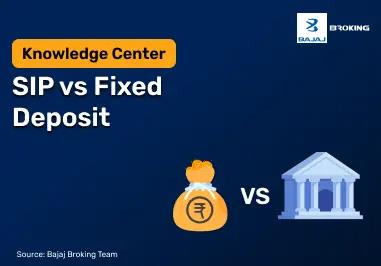Smallcase and mutual funds are two common ways of investing money. Both help in growing savings, but they work differently. Knowing the difference can help you choose what is right for you.
Knowing the difference between mutual funds and smallcases is important. Both are ways to invest money, but they work in different ways. A smallcase is a ready-made group of shares built around an idea or theme.
A mutual fund collects money from many people and invests it in shares, bonds, or other assets. Knowing smallcase vs mutual funds helps you choose the right option for your goals.
What is Smallcase?
A smallcase is a basket of shares you can buy together. It is built around a theme, such as electric mobility, technology, or debt-free companies. The shares go directly into your Demat account. You own them yourself, and you can sell or keep them whenever you want.
Smallcases started in 2015 through a fintech company. Licensed SEBI professionals build these baskets using research and market trends.
For example, Bajaj Broking offers access to many different smallcases. Investors like them because they give more control and connect with themes they believe in.
Advantages of Smallcase
Low Costs
Smallcases usually have lower costs than mutual funds. Some are free, while others have small subscription fees.
Direct Ownership
You own the shares directly in your Demat account. You can buy or sell them anytime.
Theme-Centric Investing
Smallcases are built around themes like technology or clean energy. This lets you invest in ideas you support.
Transparency
You can see all the shares in your basket. Nothing is hidden, so it is easy to know what you own.
What are Mutual Funds?
Mutual funds collect money from many investors. The money is invested in shares, bonds, or other assets. A fund manager makes all the decisions. You do not own the shares directly. Instead, you own units of the fund. The value of these units is called the Net Asset Value (NAV), which changes daily.
Mutual funds are popular because they are simple. You do not need a Demat account. You also do not need to study the stock market. You just invest, and the fund manager handles the rest.
Advantages of Mutual Funds
Accessibility
You can start investing in mutual funds with as little as ₹500. This makes them easy for beginners.
Liquidity
You can sell your units on any working day. This gives you quick access to your money.
Diversification
Mutual funds spread money across many companies and sectors. This reduces risk because poor performance in one area does not affect everything.
Professional Management
Experienced fund managers take care of the investment choices. This is useful if you do not have time or knowledge about the stock market.
Smallcase vs Mutual Funds: Key Difference
Particulars
| Smallcase
| Mutual Funds
|
What is Smallcase?
| A basket of shares in your Demat account. You can buy or sell shares anytime.
| A pool of money invested by a fund manager. You own fund units, not shares.
|
Holding Pattern
| Shares are held in your Demat account. Dividends and benefits go directly to you.
| You hold units, not shares. A Demat account is not needed.
|
Risk Involved
| Risk depends on the chosen shares. Some baskets may not be well diversified.
| Risk is lower because money is spread across many companies.
|
Exit Load
| No lock-in period. You can sell anytime without extra charges.
| Some funds have lock-in periods. Exit charges may apply.
|
Expense Ratio
| Costs are usually lower, but they vary by smallcase.
| A fixed expense ratio is charged. This includes management fees.
|
Smallcase and Mutual Funds: Which is a Better Investment Option?
The choice depends on your goals, risk level, and knowledge. A smallcase is beneficial if you want control and the ability to invest in specific themes. A smallcase allows you to own the stocks directly. But it comes with a higher level of risk.
Mutual funds are the way to go if you want diversification and professional management. They are easy to get started and do not require much, if any effort on your part. But you do not control the stocks in the fund.
For example, Ravi chooses a smallcase of renewable energy companies because he believes solar power will grow. He owns those shares directly. Asha chooses a mutual fund that invests in many sectors like banking and IT. She owns units, not the shares. Both are investing, but in different ways.
Conclusion
Both smallcases and mutual funds are useful ways to invest. Smallcases provide direct ownership and connect you to themes, offering varying levels of market knowledge and a degree of risk. Mutual funds provide diversification and pro management, and are easier for beginners.
A good investment option will depend on your knowledge, financial objectives and future risk tolerance levels. If you don't feel completely comfortable, you can just invest in mutual funds now and try smallcases later. Others may even use both in an effort to positively manipulate their control and their safety.
An important thing you can do is start early and invest regularly. This way, whether you go with smallcases or mutual funds, you can grow your money.














